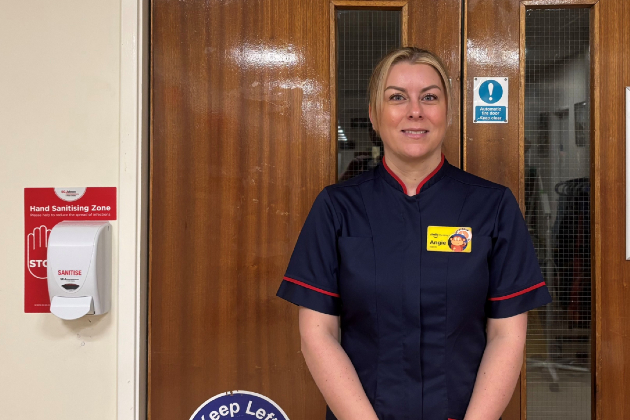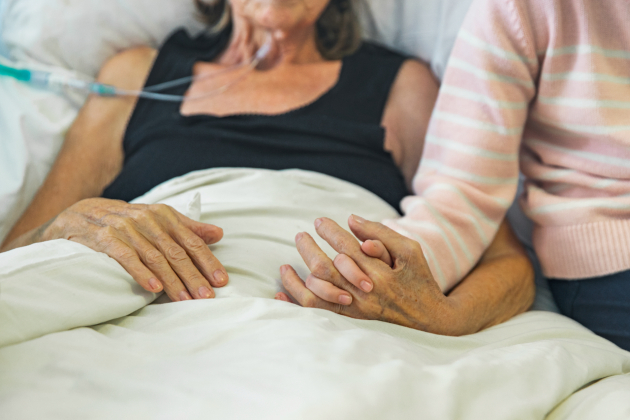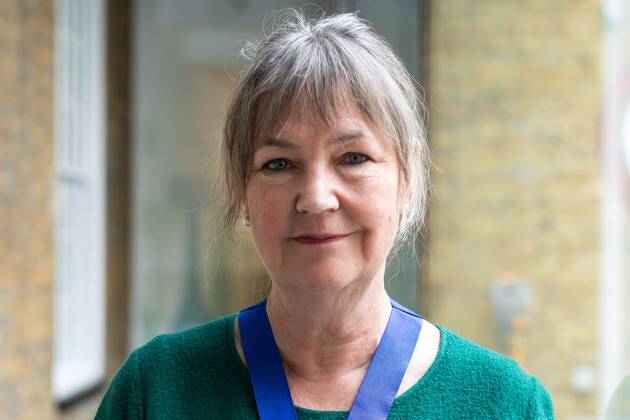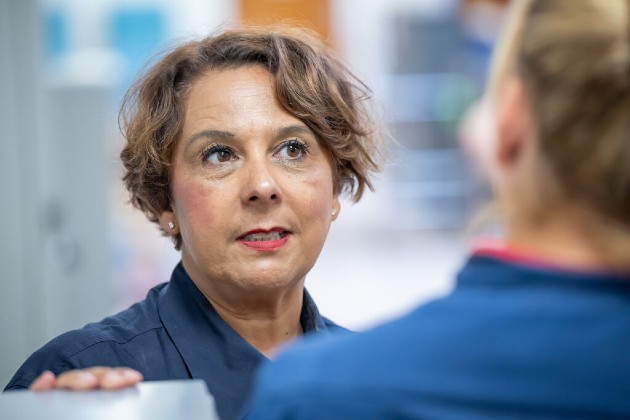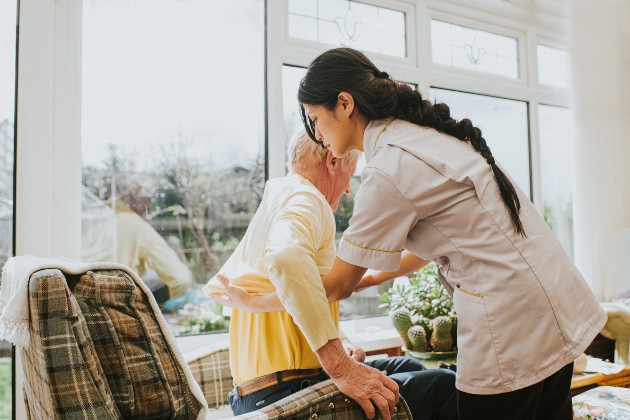Across the UK, trans individuals are encountering unique challenges in accessing timely, appropriate and affirming cancer treatment. From gaps in medical knowledge to systemic discrimination, these obstacles can, and do, have serious health implications.
We must commit to advocating for a health care system that truly serves everyone. We need to work together to dismantle barriers and foster inclusivity to ensure that no one is left behind in the fight against cancer.
Here’s how we can make a start.
Issue 1: close the guidelines gap
The absence of trans-inclusive cancer screening guidelines within the NHS is one of the most significant barriers that needs addressing – and urgently.
Standard screening programmes are often designed with cisgender individuals in mind, which can lead to delayed diagnoses, poorer health outcomes, and confusion about eligibility and the appropriate screening procedures for trans people.Administrative issues, such as the management of gender markers in medical records, can hinder access to appropriate cancer screenings, too.
Screening invitations should be based on a person's anatomy rather than legal gender markers
The trans community are especially at risk from missing screening invitations for three common cancers.
Cervical cancer: trans men and non-binary individuals assigned female at birth who retain a cervix are at risk for cervical cancer. However, if they’ve registered with their GP as male, they may not receive automatic invitations for cervical screenings.
Breast cancer: trans women and non-binary individuals assigned male at birth who undergo hormone replacement therapy with oestrogen are at an increased risk of breast cancer compared to cisgender men. Despite this, no standardised guidelines for breast cancer screening in trans women exist.
Prostate cancer: trans women are also at risk of developing prostate cancer, as the prostate is not removed during genital reconstructive surgery to reduce the risk of side effects like urinary problems and damage to nerves. These patients may be missing out on routine tests used to diagnose prostate cancer, especially the prostate specific antigen blood test (PSA), which is offered to cis men over 50 years old.
What can we do?
Improve screening access
- The NHS must clarify and adapt cancer screening protocols to explicitly include trans individuals.
- Screening invitations should be based on a person's anatomy rather than legal gender markers.
- Health care providers should be encouraged to discuss personalised screening plans with trans patients as part of their routine care.
Issue 2: understand long-term hormone therapy risk
Gender-affirming hormone therapy is a core component of care for many trans individuals, but its effects on cancer risk are not fully understood.
Research indicates that trans women undergoing hormone treatment have a higher risk of breast cancer compared to cisgender men, but lower than a cisgender woman.
Raising awareness within trans communities about cancer risks and screening is essential
For trans men, testosterone therapy may affect breast and uterine tissue, although data on long-term risks remains limited. The lack of robust research leaves many trans individuals uncertain about their specific risks and appropriate screening protocols.
What can we do?
Raise awareness and conduct more research
- Raising awareness within trans communities about cancer risks and screening is essential. Collaboration between advocacy groups, health care providers and government bodies can also ensure that trans individuals receive clear, accessible information about those risks.
- Increased investment in research is needed to develop evidence-based screening guidelines for trans individuals. Without accurate data, it’s challenging to fully understand cancer prevalence, risk factors and outcomes within the trans community.
- Ensuring trans representation in medical studies will allow health care providers to make informed recommendations for cancer prevention and treatment.
Issue 3: manage medical mistrust
Depending on how they are registered, trans patients are not routinely invited to breast and cervical screening, but they are entitled to request screenings from their GP. Yet, experiences of discrimination in health care settings deter many trans people from even requesting these screenings or from seeking medical attention in general.
Health care providers often lack education around trans-specific health care needs, resulting in misdiagnoses or inadequate care which can exacerbate health disparities.
Trans individuals deserve equitable, affirming, and accessible cancer care
A 2023 survey by the LGBT Foundation found that transgender people were more than twice as likely as cisgender people to experience discrimination and unfair treatment at their GP. LGBTIQ+ patients often report incorrect assumptions at their GP surgery regarding their partners or family, their sexual orientation, gender identity or preferred pronouns.
What can we do?
Enhance LGBTIQ+ competency training
- Implementing mandatory LGBTIQ+ competency training across medical and nursing education is crucial. Training should include cultural sensitivity around using correct names and pronouns to create an inclusive environment.
- Health care providers must also understand gender-affirming care and recognise the implications of hormone treatments on cancer risk and screening needs.
- Training like this can improve patient-provider relationships and encourage trans individuals to engage with health care services, especially in primary care.
Brighter, healthier futures
Trans individuals deserve equitable, affirming, and accessible cancer care, yet so many face substantial hurdles. Addressing these disparities needs a comprehensive approach, one which includes inclusive screening programmes, improved provider education, and better research into trans-specific cancer risks.
By taking these steps, the health care system can move toward a future where all patients, regardless of gender identity, receive the care they need.
Further information
- Want to explore this topic further? Watch our webinar: Transforming care for transgender patients.
- If you’re working with people in the LGBTIQ+ community affected by cancer, OUTpatients offers access to a range of professional resources.
- Find out more about UKCATs, the UK Cancer and Transition Service.
- Mo is part of the RCN Cancer Forum. Find out more about their work and how you can get involved.



